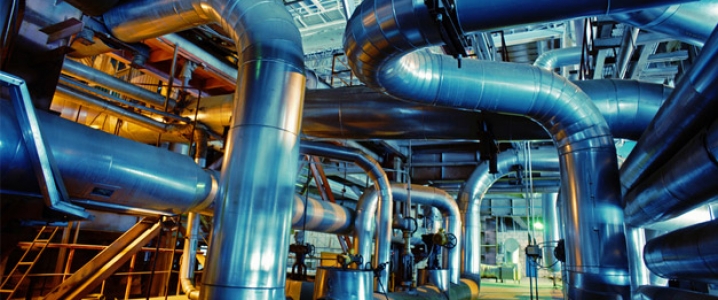In what can arguably be called a strategic geopolitical gesture toward France, Iran’s oil minister Bijan Zanganeh said on Saturday that the country would refund French oil major Total for its investment in the South Pars natural gas field. However, that assurance comes with a caveat, the refund won’t be issued until phase 11 of the massive gas field becomes operational. France, for its part, had been one of the main EU members that had lobbied, unsuccessfully albeit, for Trump to reconsider his pledge to reimpose sanctions on Iran.
“Total is not supposed to pay a sum as a penalty to Iran, but the money that this company has invested in phase 11 of South Pars until now will not be reimbursed until the time of operation and production,” Zanganeh said.
In July 2017, Total signed Iran’s first major energy deal since sanctions had been removed the previous year. Under terms of the 20-year deal, Total agreed to invest an initial $1 billion for the first stage of the project, taking a 50.1 percent interest, while its total investment would eventually reach $5 billion. Chinese National Petroleum Corp. (CNPC) was slated to own 30 percent and Iran's Petropars a 19.9 percent share.
However, shortly after President Trump announced that he would reimpose sanctions against Iran over its nuclear development program in May, Total once again had to rethink its Iranian oil and gas sector policy. Last month, the company officially pulled out of Iran and exited the South Pars Deal. The first series of reimposed U.S. sanctions were reinstated in early August and target the country's automotive sector, issuance of debt and metals trade. More sanctions are to come on November 4, that will directly target the country’s oi and gas sector, shipping industry and financial institutions.
Sanctions and gas
The problem for Total and other foreign firms that were ramping up deals with Iran include the possibility of so-called secondary sanctions leveled against them for continuing to cooperate with Iran. The Total pullout was a major blow for Iran which has been trying for years to jump start its fledgling natural gas production to help meet domestic demand as well as the possibility of restarting its mothballed liquefied natural gas (LNG) project that had also been canceled due to earlier Western sanctions. Related: Will The U.S. Let India Continue To Import Iranian Crude?
As recently as last November, it appeared that Iran could be set to export its first LNG cargoes within a year or two as the country pressed ahead with its proposed floating LNG (FLNG) production project. National Iranian Oil Co (NIOC) signed a contract with joint venture company IFLNG. At the time analysts said the $600 million project would be “insignificant” in terms of volume but would nonetheless help Iran to deepen its integration with partners in Asia and Europe and build up the country’s experience in LNG trade and marketing.
However, Iran’s natural gas supply deals already in place will not suffer the brunt of upcoming sanctions as much as its oil sector. As much as 1 million barrel per day (bpd) of Iranian oil will be removed from global markets, with that number likely to increase as sanctions take hold.
Iranian gas sector for its part, though a considerably smaller part of the country’s total energy sector, should see a number of key gas supply agreements remain in place despite sanctions.
Turkey, which obtains around 40 percent of its electricity from natural gas, is due to buy 9.5 million cubic meters (bcm) of gas from Iran in a contract which runs through 2026. In a speech in July, Turkish President Recep Tayyip Erdogan asked: “Who will heat my country throughout the winter?”
Iran and Turkey's ability to continue with their gas contract has also been helped by an agreement signed last October when the two sides agreed to allow their own currencies to be used for bilateral trade instead of U.S. dollars. Tehran has tried to set up similar arrangements with other governments including Russia. If deals go ahead on that basis, it will effectively remove one of Trump’s main leveraging tools by allowing Iran and its partners to bypass the U.S. financial system. Other major gas clients, especially Armenia and Azerbaijan, are likely to continue their gas deals with Iran as well despite sanctions.
By Tim Daiss for Oilprice.com
More Top Reads From Oilprice.com:
- Why The U.S. Is Suddenly Buying A Lot More Saudi Oil
- How Iran Plans To Bypass The World’s Main Oil Chokepoint
- Russia’s New Gas Giant


















